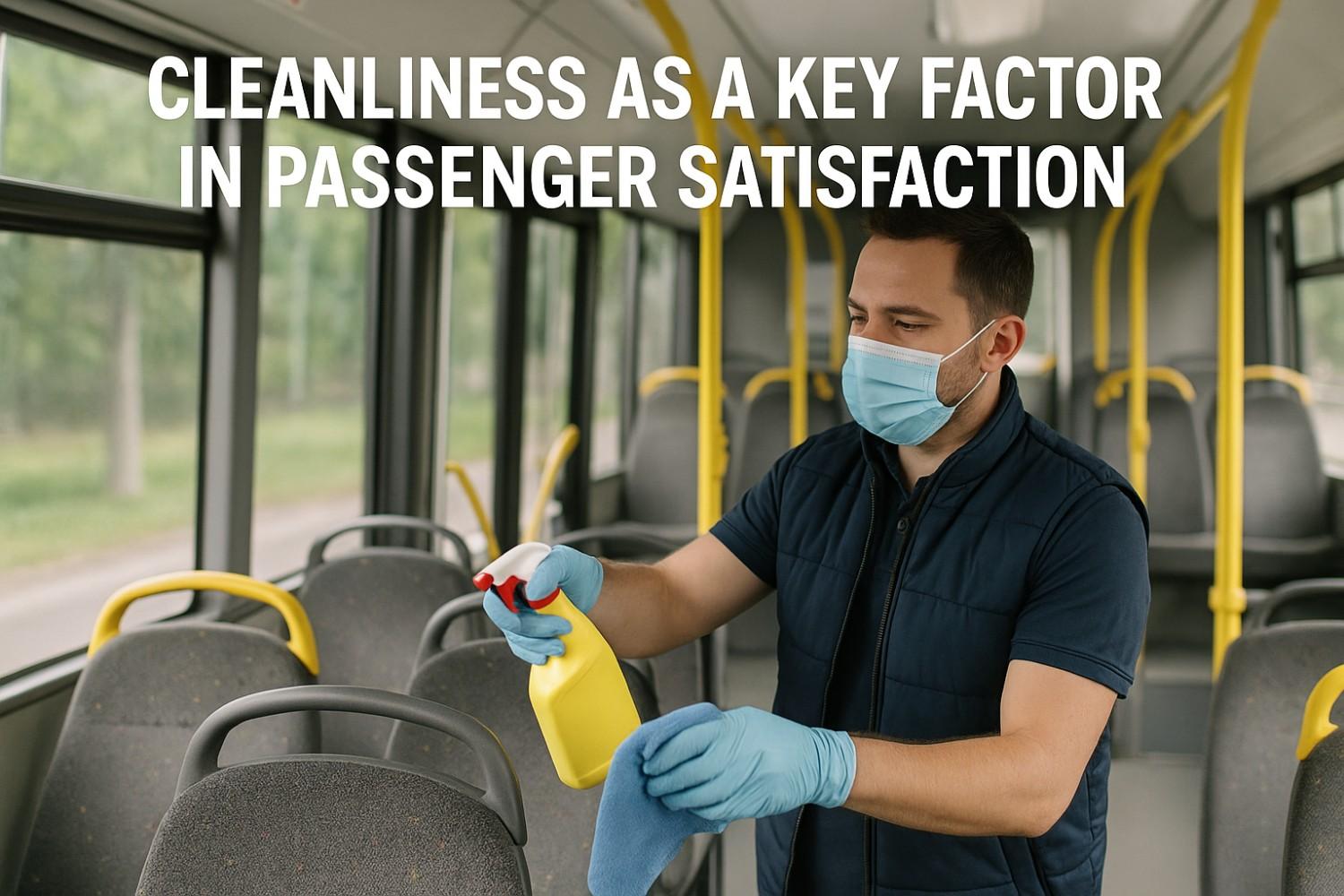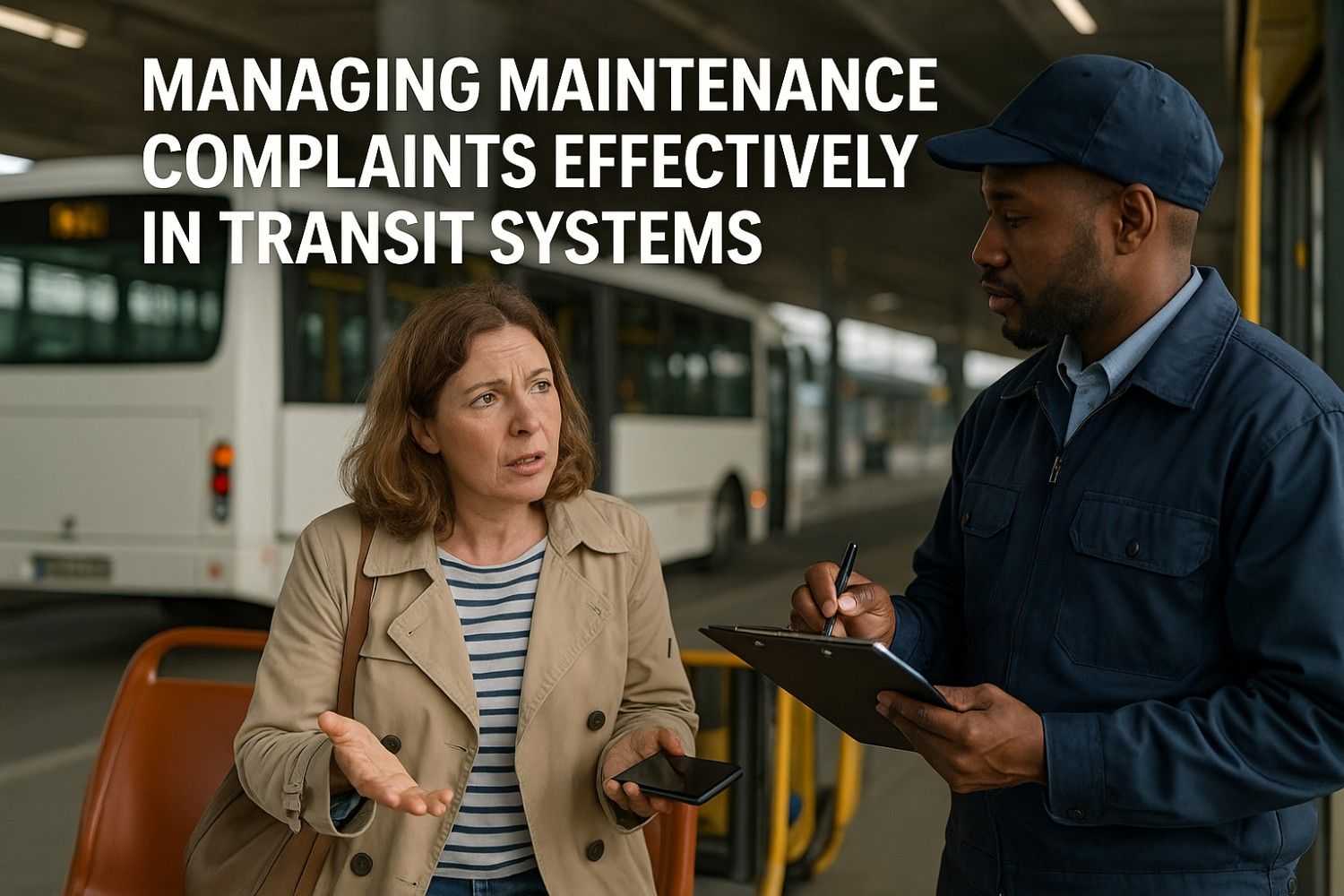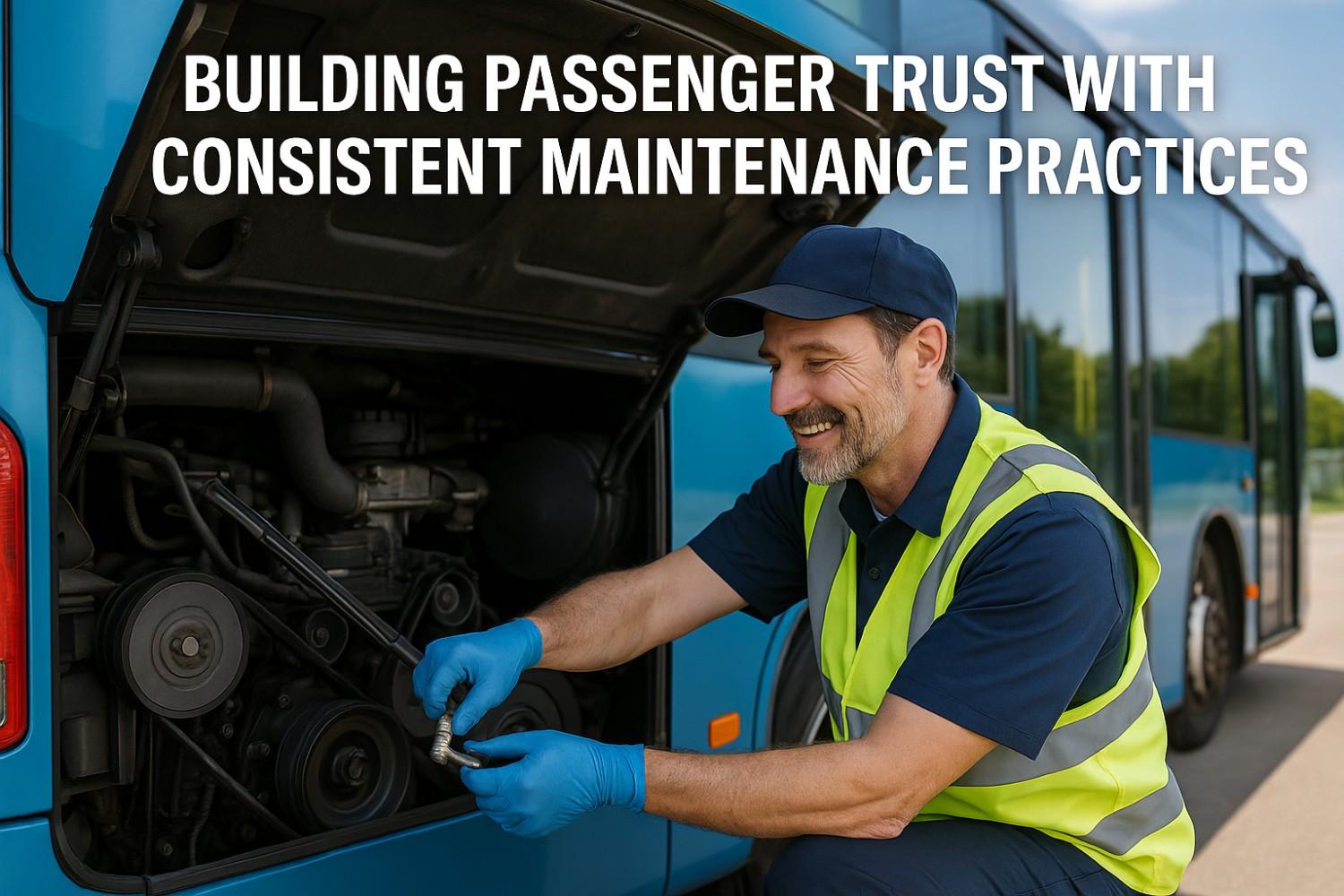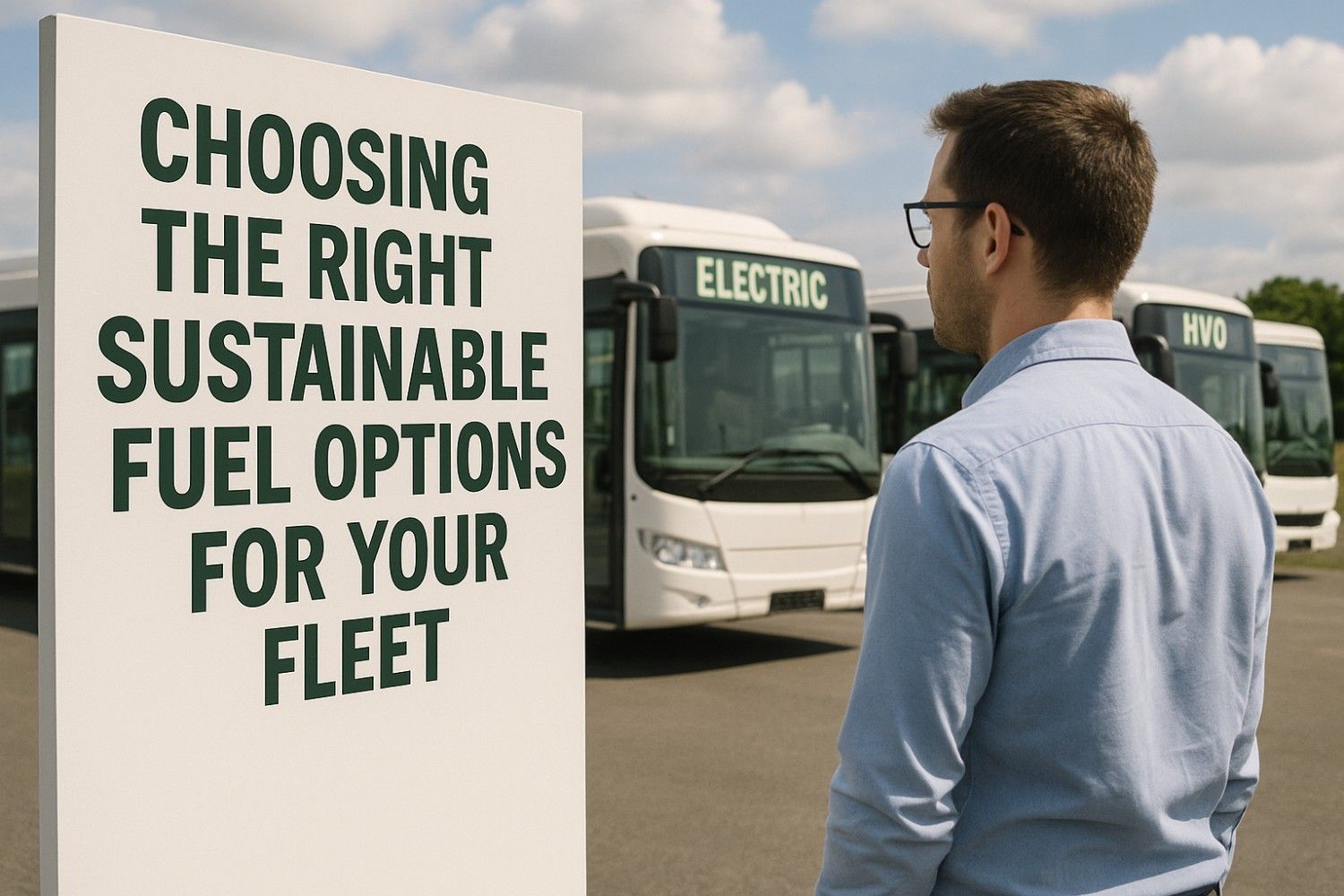Driver satisfaction directly impacts fleet operational success through retention rates, safety performance, customer service quality, and overall organizational effectiveness. The nationwide driver shortage affecting transit operations makes retention of experienced, skilled drivers more critical than ever, with recruitment and training costs averaging $8,000-$12,000 per driver creating substantial financial incentives for improving satisfaction and reducing turnover. Modern Bus CMMS platforms enhance driver experience through better vehicle reliability, improved communication systems, streamlined administrative processes, and recognition programs that demonstrate organizational appreciation for drivers' essential contributions to community transportation services.
Traditional fleet operations often inadvertently create driver frustration through unreliable vehicles requiring excessive downtime, poor communication leaving drivers uninformed about vehicle status and route changes, administrative burdens consuming valuable off-duty time, and lack of recognition for safe, professional performance. These accumulated frustrations compound daily stress, erode job satisfaction, and ultimately drive experienced operators toward other employment opportunities offering better working conditions, communication, and appreciation. The resulting turnover disrupts service quality, increases training costs, and creates operational challenges as fleets struggle to maintain adequate staffing levels with qualified, experienced drivers.
Fleet operators implementing driver-focused CMMS solutions report transformative improvements: 35% reduction in driver turnover, 40% decrease in vehicle-related complaints, 50% improvement in driver satisfaction scores, and 28% increase in safety performance metrics. These outcomes demonstrate how technology investments supporting driver needs deliver measurable organizational benefits while creating positive work environments that attract and retain quality operators. Enhanced driver satisfaction translates directly to better customer service, improved safety records, reduced recruitment costs, and stronger organizational culture. Start improving your driver satisfaction with CMMS solutions designed to support operator needs and enhance daily work experiences.
Transform Your Driver Experience Today
Discover how Bus CMMS creates positive driver experiences through better vehicle reliability, improved communication, and recognition systems that boost morale and retention.
Enhance Driver SatisfactionSee Driver Features Demo
Improving Vehicle Reliability and Condition
Vehicle reliability represents the foundation of driver satisfaction, with consistent access to well-maintained buses enabling professional, stress-free service delivery while mechanical problems create frustration, schedule disruptions, and safety concerns. Bus CMMS platforms prioritize preventive maintenance preventing unexpected breakdowns, track vehicle condition ensuring quality equipment assignment, and enable rapid issue resolution minimizing driver exposure to problematic vehicles. Explore how preventive maintenance improves vehicle reliability and enhances driver confidence in assigned equipment.
Proactive Maintenance Benefits for Drivers
Predictive maintenance scheduling prevents breakdowns during service hours, eliminating stressful roadside situations requiring passengers to transfer vehicles while drivers wait for assistance. Advanced analytics identify developing problems before failures occur, enabling repairs during scheduled downtime rather than emergency situations disrupting routes and schedules. This proactive approach demonstrates organizational commitment to providing drivers with reliable equipment supporting professional service delivery.
Vehicle assignment transparency enables drivers to understand vehicle condition, recent maintenance activities, and known issues before beginning routes. Bus CMMS platforms provide mobile access to vehicle histories, maintenance records, and current status information empowering drivers with knowledge supporting informed pre-trip inspections and operational decisions. This transparency builds trust and confidence while reducing surprises from unexpected vehicle problems.
Quality Equipment Assignment
- Fair Rotation Systems: Automated assignment protocols ensure equitable distribution of newer, better-maintained vehicles across all drivers
- Condition-Based Assignments: Match vehicle condition to route requirements preventing assignment of marginal equipment to demanding services
- Issue Tracking: Document chronic problems ensuring vehicles don't repeatedly return to service with unresolved issues
- Driver Feedback Integration: Incorporate operator input into maintenance decisions addressing concerns about specific vehicles
- Performance Standards: Maintain minimum vehicle quality thresholds preventing assignment of substandard equipment to revenue service
Streamlined Communication and Support
Critical Communication Improvements
- Real-Time Updates: Instant notifications about route changes, vehicle assignments, and operational modifications directly to driver mobile devices
- Two-Way Communication: Enable drivers to report issues, request assistance, and receive immediate responses from dispatchers and supervisors
- Maintenance Status: Transparent vehicle repair progress updates preventing uncertainty about vehicle availability and assignment changes
- Emergency Support: Quick access to assistance during breakdowns, accidents, or passenger incidents with GPS location sharing
Effective communication eliminates driver frustration from uncertainty, last-minute changes, and difficulty obtaining information or assistance. Bus CMMS platforms integrate mobile communication tools providing drivers with instant access to supervisors, dispatchers, and maintenance staff while enabling management to deliver timely updates about operational changes, weather conditions, or service adjustments. This bidirectional communication creates support networks reducing driver isolation and stress. Implement modern communication tools that keep drivers informed, supported, and connected throughout their workday.
Maintenance issue reporting through mobile applications enables drivers to document problems immediately when discovered rather than relying on end-of-shift paper reports often forgotten or delayed. Instant digital reporting ensures rapid maintenance response while demonstrating that driver observations receive prompt attention and appropriate action, validating professional expertise and encouraging continued vigilance.
Reducing Administrative Burden
Administrative tasks consume driver time while adding stress and frustration when systems prove cumbersome, time-consuming, or unreliable. Bus CMMS platforms streamline paperwork through digital forms, automated data collection, and mobile applications eliminating redundant manual processes that extend workdays and complicate simple tasks. Simplified administration demonstrates respect for driver time while enabling focus on core responsibilities rather than bureaucratic requirements. See how digital workflows eliminate paperwork and simplify driver administrative tasks.
Digital Process Improvements
Pre-Trip Inspections
Mobile checklists with guided workflows and photo documentation eliminate paper forms while ensuring thorough, compliant inspections
Defect Reporting
Instant digital defect entry with voice-to-text, photos, and automated routing to maintenance departments for immediate action
End-of-Shift Processes
Automated data capture reduces manual reporting requirements enabling faster shift completion and timely departures
Time tracking and schedule management through integrated systems eliminate manual timecard completion, reduce payroll errors, and provide transparent visibility into hours worked, overtime accrual, and schedule assignments. Automated systems reduce administrative disputes while ensuring accurate, timely compensation supporting driver financial security and satisfaction.
Safety Enhancement and Driver Protection
Driver safety concerns directly impact job satisfaction and retention, with well-maintained vehicles, rapid emergency response capabilities, and comprehensive safety programs creating work environments where operators feel protected and valued. Bus CMMS platforms support driver safety through rigorous maintenance preventing mechanical failures, incident documentation systems, and safety performance tracking recognizing safe operators while identifying training needs. Build comprehensive safety programs that protect drivers while demonstrating organizational commitment to operator wellbeing.
Safety Program Components
- Brake System Maintenance: Prioritized preventive maintenance ensuring reliable stopping power and driver confidence in emergency situations
- Visibility Equipment: Consistent maintenance of mirrors, cameras, lighting, and windshield systems supporting safe vehicle operation
- Incident Support: Documented procedures and immediate assistance protocols helping drivers navigate accident and incident responses
- Safety Training: Ongoing education programs with performance tracking ensuring drivers maintain current knowledge and skills
- Recognition Programs: Acknowledge safe driving records, zero-incident periods, and professional performance encouraging continued excellence
Incident investigation and support systems treat drivers fairly while gathering factual information supporting accurate determinations and appropriate responses. Bus CMMS platforms document vehicle maintenance status, operational conditions, and relevant factors protecting drivers from blame for mechanical failures or circumstances beyond their control. This fair, evidence-based approach builds trust and confidence in organizational support.
Performance Recognition and Feedback
Recognition programs acknowledging driver achievements, safe performance, and professional service delivery significantly impact satisfaction and retention. Bus CMMS platforms track performance metrics enabling objective recognition of exceptional operators while providing constructive feedback supporting continuous improvement. Data-driven recognition systems ensure fairness, consistency, and transparency in acknowledgment programs building positive workplace culture. Explore performance tracking features that identify excellence and enable meaningful recognition programs.
Performance Metrics for Recognition
Safety performance tracking including incident-free periods, defensive driving scores, and adherence to speed limits provides objective criteria for recognition programs celebrating safe operators. Publicly acknowledging safe driving achievements through awards, bonuses, and organizational communications demonstrates appreciation while encouraging continued excellence across entire driver populations. This positive reinforcement creates safety culture superior to punitive approaches focused solely on violations and mistakes.
Fuel efficiency performance metrics recognize drivers practicing techniques reducing consumption and operating costs. Eco-driving recognition programs reward smooth acceleration, optimal speed management, and appropriate idle time control demonstrating that professional driving practices receive appreciation and acknowledgment. These programs align driver behaviors with organizational efficiency objectives while providing positive feedback encouraging continued performance.
Recognition Program Elements
- Monthly Safety Awards: Recognize operators achieving incident-free performance with public acknowledgment and tangible rewards
- Efficiency Leaders: Celebrate drivers demonstrating superior fuel economy and operational efficiency
- Customer Service Excellence: Acknowledge positive passenger feedback and professional service delivery
- Attendance Recognition: Reward reliability, punctuality, and commitment to scheduled service delivery
- Longevity Milestones: Celebrate service anniversaries recognizing loyalty and experience contributions
Work-Life Balance Support
Schedule predictability, fair duty assignments, and respect for personal time significantly influence driver satisfaction and retention. Bus CMMS platforms support work-life balance through transparent scheduling systems, equitable overtime distribution, and efficient operations minimizing unnecessary delays and work extensions. Organizational respect for driver personal time demonstrates appreciation while supporting healthy work-life integration. Implement scheduling systems that balance operational requirements with driver quality-of-life considerations.
Schedule Management Improvements
Fair Scheduling Practices
- Advance Schedule Posting: Provide sufficient notice enabling personal planning and reducing last-minute disruptions
- Preference Accommodation: Consider driver shift preferences and personal constraints when creating work schedules
- Overtime Equity: Distribute additional work opportunities fairly preventing burnout while offering willing drivers extra earnings
- Time-Off Requests: Streamlined digital processes for requesting and approving vacation, personal days, and schedule modifications
Efficient operations enabled by reliable vehicles and optimized routes prevent unnecessary work extensions from breakdown delays, equipment problems, or operational inefficiencies. Drivers appreciate organizations that respect scheduled end times, minimize unpredictable overtime, and maintain operational consistency supporting personal commitments and family responsibilities.
Training and Professional Development
Investment in driver training, skill development, and career advancement opportunities demonstrates organizational commitment to workforce development while improving operational performance. Bus CMMS platforms manage training programs, track certifications, and document professional development supporting driver growth and advancement. Comprehensive training programs improve driver confidence, competence, and job satisfaction while preparing operators for new technologies and evolving operational requirements. Discover training management features that support driver development and career progression.
Training Program Management
Certification tracking ensures drivers maintain required licenses, endorsements, and qualifications while identifying upcoming renewal requirements preventing lapses that could affect employment. Automated reminders, training scheduling, and documentation management eliminate driver stress about compliance requirements while ensuring organizational regulatory adherence. This proactive support demonstrates care for driver careers and professional standing.
New technology training prepares drivers for alternative fuel vehicles, advanced safety systems, and updated equipment ensuring confidence and competence with evolving fleets. Comprehensive preparation before introducing new vehicle types prevents driver frustration from unfamiliar equipment while supporting smooth technology transitions maintaining operational reliability and driver satisfaction.
Facility and Equipment Quality
Driver facilities including break rooms, restrooms, and amenities significantly impact daily work experience and organizational perception. Clean, comfortable facilities with functional equipment demonstrate respect for drivers while providing necessary spaces for breaks, meals, and preparation. Bus CMMS platforms track facility maintenance, schedule cleaning services, and document equipment functionality ensuring consistent facility quality supporting driver comfort and satisfaction. Maintain quality driver facilities through systematic facility management and preventive maintenance programs.
Facility Quality Standards
- Clean Restrooms: Regular cleaning schedules and maintenance ensuring sanitary, functional facilities available throughout facilities
- Comfortable Break Rooms: Well-maintained spaces with seating, refrigeration, microwaves, and coffee supporting meal breaks and relaxation
- Locker Facilities: Secure personal storage enabling drivers to protect belongings during shifts
- Climate Control: Properly functioning heating and cooling in all driver areas maintaining comfortable environments year-round
- Equipment Functionality: Working vending machines, communication systems, and time clocks eliminating daily frustrations from broken equipment
Vehicle cleanliness standards ensure drivers operate clean, well-maintained buses reflecting professional standards and organizational pride. Regular interior cleaning, exterior washing, and detailing demonstrate respect for drivers and passengers while supporting professional image and operator satisfaction with assigned equipment quality.
Responsive Issue Resolution
Rapid, effective response to driver concerns and reported problems demonstrates organizational responsiveness and respect for operator input. Bus CMMS platforms track driver-reported issues, document resolution actions, and close feedback loops ensuring drivers understand how their concerns were addressed. This responsive approach builds trust while encouraging continued reporting of problems requiring attention. Implement issue tracking systems that ensure driver concerns receive prompt attention and appropriate resolution.
Issue Resolution Process
Vehicle defect follow-through ensures reported problems receive proper maintenance attention rather than being ignored or deferred indefinitely. Bus CMMS platforms track defect status from initial report through repair completion and driver notification, preventing vehicles from returning to service with unresolved issues frustrating operators and passengers. This accountability demonstrates organizational commitment to equipment quality and driver input validation.
Driver feedback integration incorporates operator suggestions into operational improvements, maintenance procedures, and policy modifications. Systematic collection and evaluation of driver input through CMMS platforms identifies improvement opportunities while demonstrating that frontline perspectives receive consideration in organizational decision-making. This inclusive approach builds engagement, ownership, and satisfaction across driver populations.
Fair Treatment and Consistent Policies
Consistent policy application, fair discipline procedures, and equitable treatment across all drivers create workplace environments supporting satisfaction and retention. Bus CMMS platforms document incidents, track performance metrics, and provide objective data supporting fair, evidence-based management decisions preventing favoritism and inconsistent treatment eroding morale. Transparent systems build trust in organizational fairness and management integrity. Establish fair management systems supported by objective data and transparent processes.
Fairness and Transparency
Performance evaluation objectivity through data-driven metrics eliminates subjective assessments and perceived favoritism in recognition, discipline, and advancement decisions. CMMS platforms provide consistent performance tracking across all drivers enabling fair comparisons and equitable treatment regardless of shift assignments, route locations, or management relationships. This objectivity builds confidence in organizational fairness and merit-based systems.
Incident investigation thoroughness using comprehensive data including vehicle maintenance records, operational conditions, and witness statements ensures accurate determination of circumstances and appropriate responses. Evidence-based investigations protect drivers from blame for mechanical failures or situations beyond their control while addressing genuine performance issues appropriately. This balanced approach supports accountability while demonstrating fair treatment building driver trust and confidence.
Career Advancement Opportunities
Clear career pathways, advancement opportunities, and professional growth potential significantly impact long-term satisfaction and retention. Bus CMMS platforms track driver performance, qualifications, and training supporting identification of advancement candidates while documenting professional development preparing operators for supervisory, training, or specialized roles. Organizations offering growth opportunities retain experienced drivers while building leadership pipelines from operator ranks. Develop driver career programs that provide advancement opportunities and professional growth.
Career Development Programs
Lead Driver Positions
Recognize experienced operators with mentorship roles, training responsibilities, and leadership opportunities within driver ranks
Supervisor Pathway
Identify and develop high-performing drivers for transition into dispatch, supervision, or management positions
Specialized Operations
Offer opportunities for charter services, special events, or premium route assignments rewarding performance and experience
Technology Ease of Use
User-friendly technology systems reduce driver frustration while supporting efficient daily operations. Bus CMMS platforms with intuitive mobile interfaces, simple workflows, and reliable performance eliminate technology barriers frustrating less tech-savvy operators. Organizations selecting driver-friendly systems demonstrate consideration for diverse skill levels while ensuring technology enhances rather than hinders daily work. Choose user-friendly systems designed for easy driver adoption and daily use.
Driver-Friendly Technology Design
- Intuitive Interfaces: Simple, clear mobile applications requiring minimal training and supporting all experience levels
- Reliable Performance: Stable systems with consistent functionality preventing frustration from crashes, errors, or unavailability
- Voice Input Options: Speech-to-text capabilities enabling hands-free reporting and documentation
- Offline Capability: Continued functionality during connectivity issues with automatic synchronization when connection restores
- Multilingual Support: Multiple language options accommodating diverse driver populations and ensuring understanding
Adequate training and ongoing support for technology systems ensure drivers feel confident using organizational tools rather than frustrated by unfamiliar or complex systems. Comprehensive onboarding, accessible help resources, and responsive technical support enable successful technology adoption across all driver populations regardless of technical background or experience levels.
Frequently Asked Questions
How does Bus CMMS specifically improve driver satisfaction and reduce turnover?
Bus CMMS enhances driver satisfaction through multiple interconnected improvements addressing primary sources of operator frustration and dissatisfaction in fleet operations. Improved vehicle reliability through preventive maintenance scheduling eliminates stressful breakdown situations while ensuring drivers consistently operate well-maintained equipment supporting professional service delivery and personal pride in assigned vehicles. Streamlined communication tools provide instant access to supervisors, dispatchers, and maintenance staff while delivering real-time updates about assignments, route changes, and operational modifications eliminating uncertainty and last-minute surprises disrupting driver plans. Digital workflows for pre-trip inspections, defect reporting, and administrative tasks reduce paperwork burden respecting driver time and enabling faster shift completion without cumbersome manual processes consuming off-duty time. Performance recognition programs using objective data acknowledge safe driving, fuel efficiency, and professional service delivery providing positive reinforcement and appreciation often absent in traditional fleet operations. Fair scheduling systems with advance notice, equitable overtime distribution, and consideration for personal preferences demonstrate respect for work-life balance supporting driver quality of life and family commitments. Comprehensive training programs with certification tracking prepare operators for new technologies while supporting career development and advancement opportunities retaining ambitious drivers seeking professional growth. Responsive issue resolution ensures reported problems receive prompt attention with documented follow-through validating driver input and demonstrating organizational commitment to addressing concerns. Combined, these improvements create positive work environments where drivers feel valued, supported, and appreciated resulting in 35% reduction in turnover, 50% improvement in satisfaction scores, and enhanced recruitment success attracting quality candidates through positive workplace reputation.
What specific CMMS features have the greatest impact on driver morale and job satisfaction?
Several Bus CMMS features deliver disproportionate impact on driver satisfaction by addressing common pain points and frustrations in fleet operations. Mobile defect reporting applications enabling instant digital documentation with photos and voice-to-text eliminate end-of-shift paperwork while ensuring immediate maintenance response to driver-identified issues, demonstrating that operator observations receive prompt attention and appropriate action. Vehicle maintenance history transparency through mobile access allows drivers to review recent service activities, known issues, and repair status before beginning routes, building confidence in assigned equipment while reducing surprises from unexpected problems during service. Real-time communication tools connecting drivers with dispatch and supervision eliminate isolation and uncertainty while enabling quick assistance during emergencies, route changes, or passenger incidents creating support networks reducing stress and anxiety. Performance tracking and recognition systems using objective data celebrate safe driving, fuel efficiency, and professional service through automated identification of excellence enabling consistent acknowledgment programs showing appreciation for quality performance. Preventive maintenance scheduling preventing breakdowns during service hours eliminates stressful roadside situations, passenger transfer requirements, and service disruptions reflecting poorly on driver professionalism and competence. Digital pre-trip inspection checklists with guided workflows simplify compliance requirements while reducing inspection time enabling faster shift starts and demonstrating respect for driver schedules. Training management with certification tracking and renewal reminders eliminates stress about compliance requirements while supporting professional development and career advancement opportunities. Schedule management systems providing advance notice, fair overtime distribution, and digital time-off requests respect driver personal time and family commitments demonstrating organizational appreciation for work-life balance. These features collectively address major satisfaction drivers including equipment reliability, communication effectiveness, administrative efficiency, recognition and appreciation, professional development, and work-life balance creating comprehensive improvements in driver experience and organizational culture.
Conclusion
Driver satisfaction represents a critical organizational asset directly impacting retention, safety performance, service quality, and operational success. Bus CMMS platforms enhance driver experience through improved vehicle reliability, streamlined communication, reduced administrative burden, and recognition systems demonstrating appreciation for operator contributions to organizational missions and community service delivery.
The documented benefits—35% reduction in driver turnover, 40% decrease in vehicle complaints, 50% improvement in satisfaction scores, and 28% increase in safety performance—demonstrate how driver-focused technology investments deliver measurable organizational improvements while creating positive work environments attracting and retaining quality operators. These outcomes extend beyond direct operational benefits to include reduced recruitment costs, enhanced service quality, improved safety records, and stronger organizational culture supporting long-term success.
As driver shortages intensify and recruitment challenges grow, fleet operators implementing comprehensive CMMS solutions supporting driver needs position themselves for competitive advantage in attracting, developing, and retaining experienced operators essential for reliable, professional service delivery. The technology exists today to dramatically improve driver satisfaction while simultaneously enhancing operational performance, creating win-win outcomes benefiting drivers, organizations, and communities served by transit operations.
Invest in Your Drivers' Success and Satisfaction
Discover how Bus CMMS can transform your driver experience, reduce turnover, and build positive workplace culture supporting operational excellence and community service.







